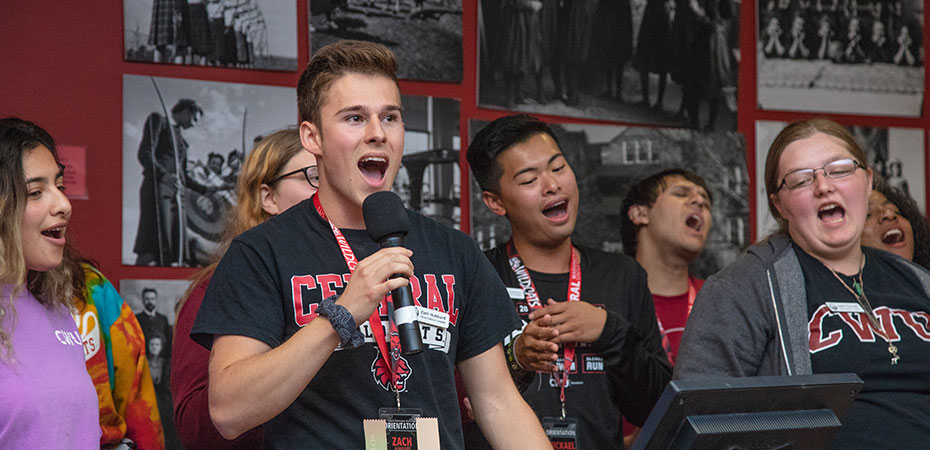
Diversity, Equity, Inclusivity
Parents and Guardians

As the parent or guardian of a young person embarking on this step into a bright future, feelings clash. On one hand, you are incredibly proud of your student. Words can't come close to capturing the enormity of pride and joy you feel.
And on the other hand, you may feel anxious about this transition. You have raised your student to be a responsible and capable young adult. And yet he/she/they hasn't faced this much time away from the support and resources that only you can provide.
This space is for you. It provides a bridge of information where excitement and anxiety can meet and where resolution can be found. As you peruse the links provided, we hope you will find yourself beginning to relax into the knowledge that your student is in a place that values diversity, and that consistently works toward an inclusive environment so your student can not only survive college, but can thrive as they meet the challenges of academic excellence.

Diversity Principles
-
Accountability
We must determine where the university is now and identify the goals and outcomes that will create an inclusive environment. Accountability helps to identify the reporting structure and the assessment of the diversity goals and outcomes throughout the university.
-
Inclusiveness/Inclusivity
All stakeholders are included on all committees, programs and curriculum issues.
-
Shared Responsibility
Each and every member of the campus community is responsible for the creation of an inclusive environment.
-
Evaluation
Continuing assessment structure in place to ensure that needs are being met and resources are provided.
-
Institutionalization
Makes diversity and inclusivity the way that the university does business.

Diversity/Inclusivity Definitions
-
Discrimination
Discrimination is an assault on the very notion of human rights. Discrimination is the systematic denial of certain peoples' or groups' full human rights because of who they are or what they believe. It is all too easy to deny a person's human rights if you consider them as "less than human".
-
Diversity
Individual differences (e.g., personality, learning styles, and life experiences) and group/social differences (e.g., race/ethnicity, class, gender, sexual orientation, country of origin, and ability as well as cultural, political, religious, and other affiliations).
-
Equity
The creation of opportunities for historically underrepresented populations to have equal access to and participate in educational programs that are capable of closing the achievement gaps in student success and completion.
-
Inclusion
The active, intentional, and ongoing engagement with diversity--in the curriculum, in the co-curriculum, and in communities (intellectual, social, cultural, geographical) with which individuals might connect--in ways that increase awareness, content knowledge, cognitive sophistication, and empathic understanding of the complex ways individuals interact within systems and institutions.
-
Whiteness
Whiteness includes several factors, historical and legal practices in the United States, systems of social beliefs, and norms all of which impact how we think about issues of race. The ideas of race are perpetuated by the social structure.
-
White Privilege
White individuals in the United States have access to different opportunities than do people of color. The advantages are often not recognized by the group in power, it has never occurred to them, which once again is a privilege of being white. There are several examples of white privilege in current U.S. society: curriculum reflects the dominant group experience, not American Indian experience, the African American experience, nor other minority groups, dominant group members expect to see themselves represented in politics, the media, and business. Dominant group members don't ever question whether some instance happened because of their race or ethnicity.
CWU News

Online Master’s of Education program now offers special education endorsement
May 15, 2024
by Rune Torgersen

Lenny Price brings Detroit perspective to CWU Jazz
May 15, 2024
by University Relations